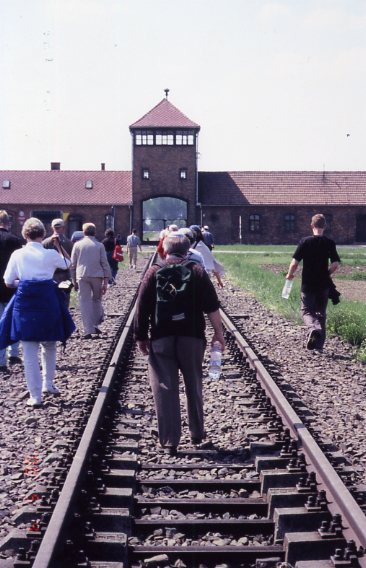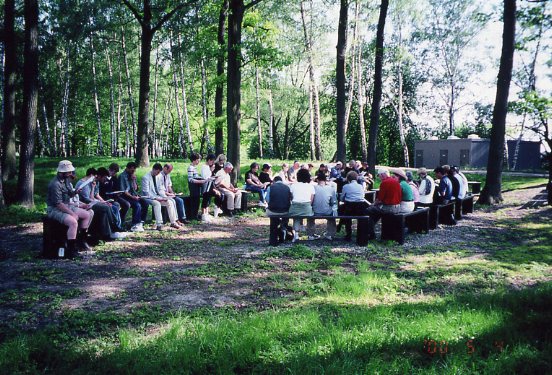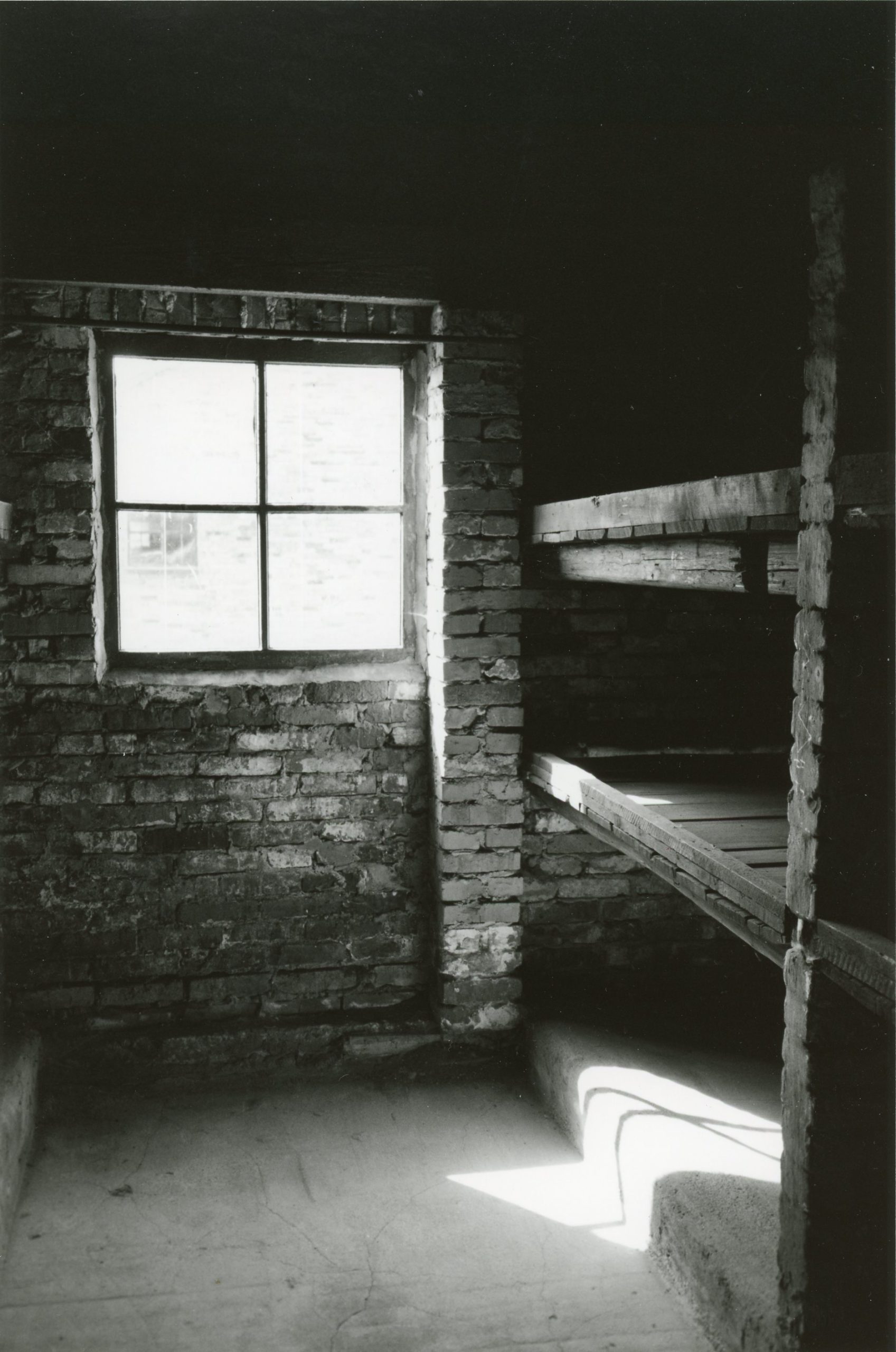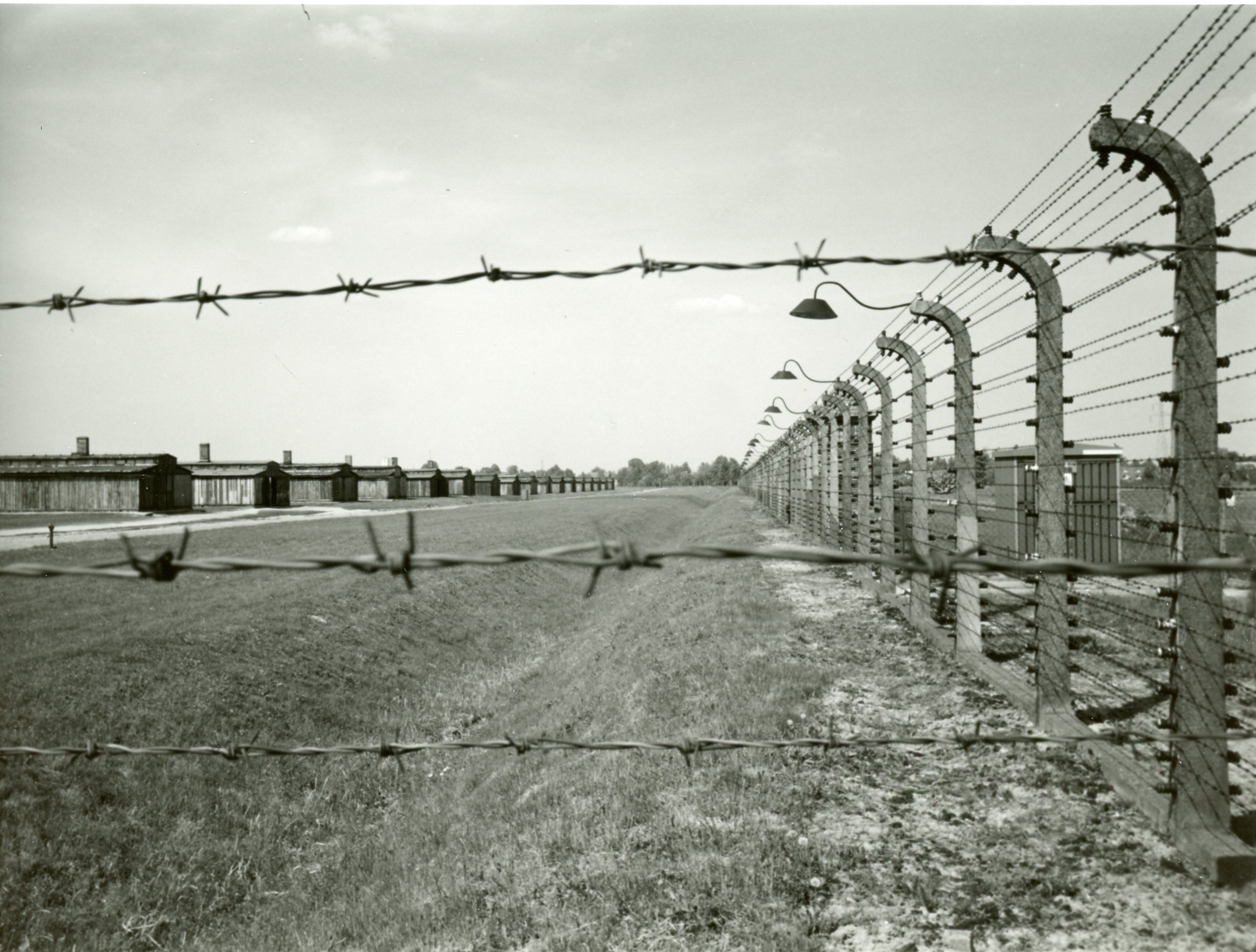Auschwitz, et al
Today is Holocaust Remembrance Day. Today Minneapolis Star Tribune has an excellent opinion piece on the topic. You can read it here.
In the Spring of 2000, we were privileged to be with a group of Christians and Jews who visited a number of Holocaust sites, together. It was an extremely powerful two weeks, including Tabor, Terezin, Czech Republic; Auschwitz-Birkenau, Poland; and the concentration camp of Schindler’s List, Plaszow in suburban Krakow.
The day we visited the Birkenau death camp happened to be my 60th birthday. We received permission to walk the one and one-half miles between Auschwitz and Birkenau, (Auschwitz-Birkenau001 called Auschwitz II click to enlarge; note rail spur identified in the photo at lower left). The intensity of that walk along the railroad tracks of death is impossible to describe, concluding with a very somber memorial service between the remains of the ovens, which were at the end of the rail spur within the camp).
It would not be appropriate to stop simply with the horrendous atrocity against the Jews.
Over history are endless atrocities against “others” not deemed desirable.
The Armenian genocide comes to mind; the virtual elimination of Native Americans; Rwanda, and on and on and on. The institution of Slavery. Labeling of Muslims.
We always seem to seek identification of some “other” to diminish or even eliminate, less worthy than ourselves.
*
Yesterday, just on a whim, we went to Oscar nominated film, Jojo Rabbit, whose preview and title was intriguing, and were my only background for it.
Take the risk to see the film, and allow your self to think beyond the comedy. It is a movie with a message for us all, on this Holocaust Remembrance Day.
POSTNOTE:
We have a dear friend who grew up in Hitler’s Germany – she was born in 1926, and has lived most of her life in the U.S., marrying a GI in 1947 who she met when his unit liberated her town. Her book, War Child, is her remembrance. Her parents refused to belong to the Nazis. Her Dad was drafted as a road engineer and died somewhere, probably in Russia, sometime after Christmas 1944. They don’t know where he died….
She demonstrates the complexity of this issue today, 75 years later. Her town in WWII was about 20 miles from Flossenberg, but it wasn’t until the very end of the war when prisoners were marched by their house that she knew there was one of the horrible camps nearby. This was before free and open and mass communication, such as we are now accustomed to.




